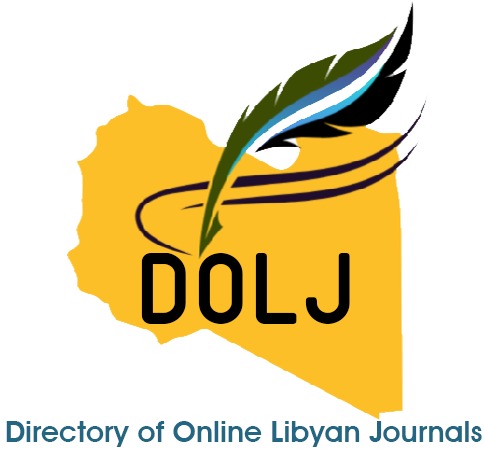Insulin-Dependent Diabetes Mellitus and the Pregnancy Outcomes: A Retrospective Study in the Pediatrics Department of Tripoli University Hospital – Tripoli, Libya
- Authors
-
-
Fozia Aborayana
Department of Pediatrics, Faculty of Medicine, University of Tripoli, Tripoli, LibyaAuthor -
Fadila Elghadban
Department of Pediatrics, Faculty of Medicine, University of Tripoli, Tripoli, LibyaAuthor -
Souad Aboalqasim
Department of Pediatrics, Faculty of Medicine, University of Tripoli, Tripoli, LibyaAuthor
-
- Keywords:
- Insulin-Dependent Diabetes, Gestational Diabetes, Pregnancy Outcomes, Macrosomia
- Abstract
-
This retrospective study aimed to investigate the association between Insulin-Dependent Diabetes Mellitus (IDM) and adverse maternal, fetal, and neonatal outcomes, with a focus on glycemic control, treatment modalities, and predictors of complications. Medical records of 35 singleton pregnancies with IDM (type 1 [T1DM], type 2 [T2DM], or gestational diabetes [GDM]) managed at a tertiary care center between January and December 2024 were analyzed. Data included maternal demographics, glycemic metrics (fasting/postprandial glucose, HbA1c), treatment regimens (diet, oral hypoglycemic agents [OHA], insulin), pregnancy complications, and neonatal outcomes. Statistical analyses employed descriptive statistics, chi-square/t-tests, and multivariate logistic regression. The results showed that the mean maternal age was 36 years (SD ±5.82), with 60% (n=21) aged >35 years. Diabetes subtypes included GDM (52.9%), T2DM (35.3%), and T1DM (11.8%). Poor glycemic control (38.2%) correlated with a tenfold increased macrosomia risk (OR=10, p=0.028). Maternal complications included infections (62.9%), pre-eclampsia (37.1%), and preterm labor (28.6%). Neonatal outcomes revealed cesarean delivery in 74.3%, hypoglycemia (62.9%), and respiratory distress syndrome (65.7%). Pre-gestational diabetes (T1DM/T2DM) was associated with higher respiratory distress rates (p=0.048) compared to GDM. Mixed insulin-OHA therapy increased fetal distress risk (100%, p=0.046). IDM significantly elevates risks of maternal-fetal complications, particularly with poor glycemic control and advanced maternal age. Findings underscore the need for stringent glucose monitoring, preconception counseling, and tailored antenatal care. Policy reforms should prioritize multidisciplinary management and equitable access to continuous glucose monitoring (CGM) in high-risk populations
- References
- Cover Image
-

- Downloads
- Published
- 2025-06-04
- Issue
- Volume 1, Issue 2, 2025
- Section
- Articles
How to Cite
Similar Articles
- Salem Swieb, Mohamed Elzwawi, Malik Delheen, Evaluating Outcomes of Percutaneous Nephrolithotomy Versus Flexible Ureteroscopy for Renal Calculi: A Retrospective Observational Study in Misrata, Libya , Razi Medical Journal: Volume 1, Issue 4, 2025
- Amhamad Alhajaji, Salem Almiladi, Ahmed Alhammali, Surgical Repair of Congenital Chest Wall Deformity (Pectus Excavatum): A 20-Year Multicenter Experience , Razi Medical Journal: Volume 1, Issue 1, 2025
- Munir Abdulmoula, Mustafa El-Ahmar, A Five-Year Study Comparing the Millard and Tennison Technique for Unilateral Cleft Lip Repair , Razi Medical Journal: Volume 1, Issue 3, 2025
- Wadiaa Benamer, Tamader Elghnimi, Mustafa Targhi, Loujain Husnein, Ussra Ben Enbaya, Women's Awareness of Contraceptives in Tripoli City: A Field Study , Razi Medical Journal: Volume 1, Issue 3, 2025
- Ahmed Atia, Eshraq Alsherif, Astabraq Ali, Raghad Nour Aldden, Samar Mohammed, Additive Effect of High Sugar Intake and Prolonged Screen Exposure on Cognitive Performance in Young Adults , Razi Medical Journal: Volume 2, Issue 1, 2026
- Hawa Abduljalil, Tarik Enaairi, Striae Gravidarum and Its Effect on the Quality of Life Index in Libyan Pregnant Women , Razi Medical Journal: Volume 1, Issue 1, 2025
- Ahmed Aniba, Mustafa El-ahmar, Omar Danfour, Fathe Abulifa, Mona Abujazia, Mohammed Elfagieh, Integrated Surgical and Anesthetic Management of Pediatric Small Bowel Obstruction Due to Foreign Body Ingestion: A Comparative Case Series on Anatomical and Perioperative Implications , Razi Medical Journal: Volume 1, Issue 4, 2025
- Hosam Elarabi, Salem Salem, Rajaa Fadel, Wafa Abozaid, Abdullah Ahmad, Ahmed Shtawa, Moftah Ali, Assessment of Fluoride Concentration in Drinking Water and Its Correlation with Dental Caries in Primary School Children in Gharyan, Libya , Razi Medical Journal: Volume 1, Issue 2, 2025
- Mufeedah Mansour, Khoulah Alaribi, Prevalence and Outcomes of Coagulase-Negative Staphylococci in Newborns Admitted to the NICU in a Tertiary Hospital in Libya , Razi Medical Journal: Volume 1, Issue 2, 2025
- Ali Madour, Haleemah Abdulrahman, Amani Alkawash, Rayan Alforgani, Saja Alzowaghi, Manal Alklabi, Eanas Elmaihub, Evaluation of Knowledge and Practice Toward Cystic Fibrosis Disease Among Medical Students and the Residents of Western Libya , Razi Medical Journal: Volume 1, Issue 3, 2025
You may also start an advanced similarity search for this article.








